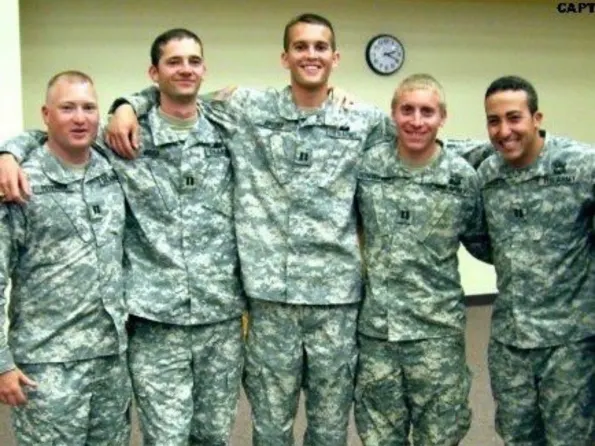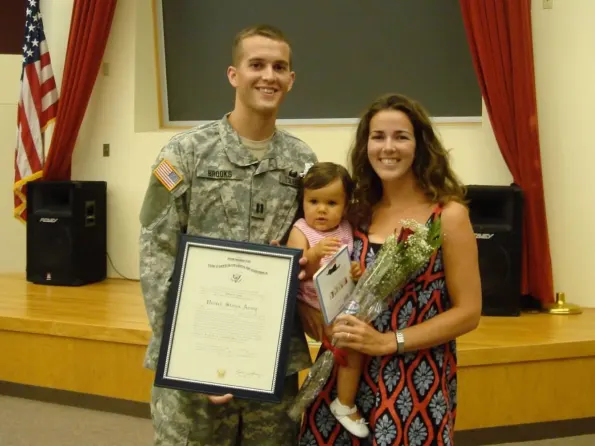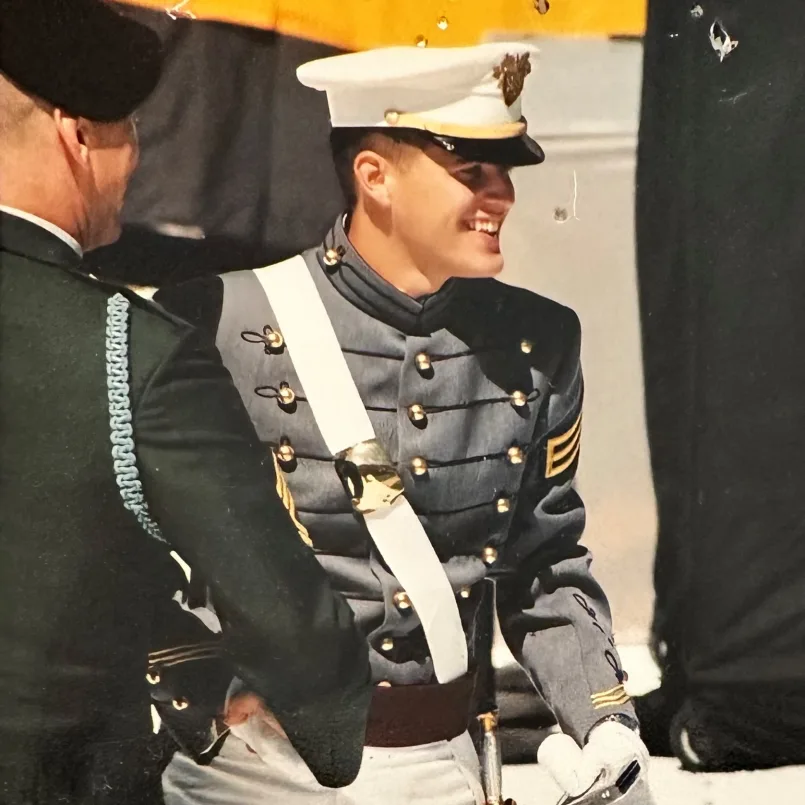The Long Gray Line is the thread that links current West Point cadets, in their gray uniforms, to past graduates of the United States Military Academy. “Everyone gets a Cullum number when you graduate,” explains Ben Brooks, Partner in the AlixPartners Aerospace & Defense practice. “I know what mine is, and precisely where I fall in the line of graduates dating all the way back to the very first graduate in 1802.”
In the continuum, he follows behind “war generals who made pivotal decisions, who led soldiers in causes for freedom … and having your name in that line is pretty cool.”
West Point sits as a fortress above the Hudson River, the lawns and stone buildings setting the stage for the tradition cadets have joined. Over the course of four years there, you “first learn to become a good follower so that you then can become a great leader,” says Ben, who went on to serve in the armed forces before shifting to civilian roles in aerospace and defense (A&D). Through that journey, he has always held tight to the lessons of service: “Everyone in our industry understands the Veteran element, they’re highly appreciative of it and see it as a differentiator.”
Acquiring a target
Ben grew up on a small turkey farm in North Carolina and was recruited by the military academy as an all-state basketball player in high school. Upon graduation, he was placed in Fort Bliss, Texas, as a second lieutenant and a PATRIOT missile defense officer. “That means he can hit a moving target,” laughs Ben’s colleague Megan McGinley, who once made the mistake of using the expression, “you can’t hit a moving target,” in front of him. In fact, it was his job to identify and counterattack enemy aircraft and missiles.
“Based on various characteristics—think airspeed, altitude, where they're flying, what codes they may be communicating back and forth to the radar—my job was to make sure that I was understanding if that was a friend or a foe, and ultimately decide whether or not to engage a target with a missile,” explains Ben.
After Fort Bliss, he moved to Ansbach, Germany, and was given a platoon to command, finding himself responsible for 30 people’s lives. He also became a father at this time, and felt firsthand how the ties of duty extend to families. “Making sure that your significant other and your children have a home and a support network, while you're off potentially fighting and giving your life for your country is incredibly important in the military.”
Ben spent his final few years in the military at White Sands Missile Range (WSMR) in New Mexico, which is the largest overland test facility in the United States. WSMR is where the Trinity test was conducted, and where many of today’s big defense prime contractors test weapons. It also has a space harbor, and works closely with NASA and each of the branches of the U.S. military.
There, he was Aide-de-Camp for the Commanding General, learning on the spot “how great leaders think, how they think about budgeting, how they think about leading, how they think about decision-making.” The people he worked with at White Sands were “some of the most brilliant people I've ever met in my life, and all focused-on defense of our country, focused on soldiers and war fighters, focused on families.”
When he left the Army, that is what he took with him into his MBA at Duke University: a servant-leader mindset attuned to the needs of his team. “The greatest thing that I learned in the military is that we as a team are going to win or lose based on our collective well-being,” he says.


Becoming the servant-leader
Ben came to AlixPartners from other Big 4 consulting firms, attracted to the small, highly experienced teams. “The aerospace and defense industry has many sectors, and we have great people on our team who have worked in sectors that I've never worked in for 20, 25, 30 years,” he says, explaining that, as an executive, he jumped at the chance to gain exposure to their expertise.
“That was really the thing that drew me: the size, the prestige, and the ability to work in small teams and focus on impactful, very complex, very challenging problems for some of the greatest aerospace and defense companies in the world.”
Traveling to client sites, he knows a lot more than your average passenger about the aircraft, the seats, engines, and the components. On the A&D team, he has championed the Aerospace & Defense Outlook, a study timed to the big air shows, Farnborough and Paris.
Throughout his work, the line connecting him to other service members remains strong.
“I can't tell you how many conversations I've had where my client was a former military service member,” he says, “and being able to lean on people on our team that have a similar experience that I have from service and being able to put those people in front of clients, I truly think it is a differentiator.”
He is likewise valued by those at the firm who benefit from his leadership. “He is a go-to for support on challenging issues and to help shape the right message,” says Aaron Edwards, Vice President on the A&D team and a Veteran himself. “Ben embodies what it means to be a true team player and leader. His leadership isn’t just about driving results; it’s about fostering a collaborative environment where everyone feels empowered to contribute their expertise.”
Megan, who is a Marketing & Communications Senior Manager for the A&D team, echoes Aaron’s sentiments: “He’s honestly the most delightful person to work with.”
Ahead of Veterans Day, Ben deflects discussions of his own career to recognize “the people that have volunteered to serve our country for a living for whatever amount of time and who understand the risks, understand the costs and the price that ultimately may be paid.”
He appreciates the rewards and the costs—for families as well as Veterans, as a father of three children. “Over almost 250 years, countless people have defended and protected our country. Veterans Day is a great opportunity to pause and thank all those who’ve served.”

